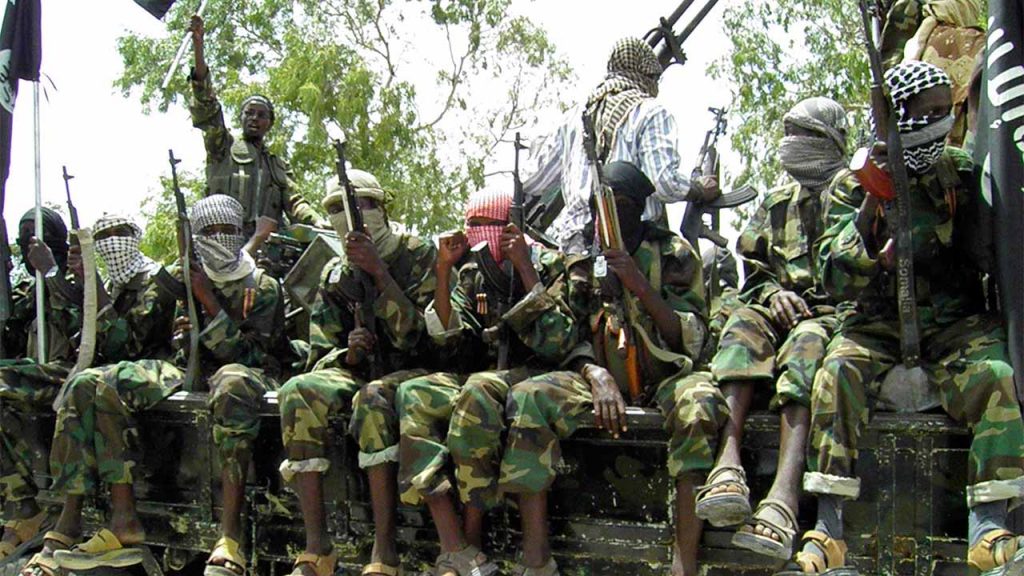
The humanitarian crisis precipitated by Boko Haram in Nigeria’s North-east will be the theme at an international symposium on forced displacement holding in Leicester, the United Kingdom, on June 12, according to premiumtimesng.com.
The symposium is the first public engagement aspect of an international development research project – funded by Leicester-based De Montfort University (DMU) Global Challenges Research Fund – on the role of social and human capital among displaced populations in North-eastern Nigeria.
This project “looks at households displaced in Northeast Nigeria, where Boko Haram insurgency has precipitated humanitarian tragedy on a scale comparable to the Nigerian civil war (1967- 1970) and arguably the worst of any manmade or natural disaster in Nigeria’s history,” stated Jo Richardson, a research and innovation dean at DMU in an email to PREMIUM TIMES.
“This study focuses on how displaced peoples are exercising their agency at the individual (human capital) and communal (social capital) levels to recover and rebuild their lives through entrepreneurship.”
From the research design stage, Ms Richardson said, impact and practical relevance is a priority.
“The active efforts of DMU researchers to engage non-academic stakeholders in research, including industry practitioners, policy makers and NGOs are vital to tackling some of the world’s most complex problems in an impactful, connected way.”
The symposium will bring together collaborators, stakeholders and other interested scholars and practitioners from a whole spectrum of disciplines and backgrounds, including the academia, government, media and development, Seun Kolade, the project lead, said.
“Already, the project team comprises one development/entrepreneurship scholar, one historian, two clinical psychologists, one UN official, one NGO official, and one investigative journalist,” said Mr Kolade, senior lecturer at DMU.
Speakers
Speakers at the symposium holding next Wednesday include Robert Smith, the chief of partnerships coordination at the United Nations Office for Coordination of Humanitarian Affairs; Gaim Kibreab, a UK-based professor of refugee studies; Ene Obi, the director of ActionAid Nigeria; James Saliba, a Nigerian professor of history from the University of Maiduguri; and Kayode Ogundamisi, activist and public affairs commentator.
The event will be moderated by Mr Kolade, the principal investigator of the DMU funded Nigerian North-east-focused project titled: “picking up the pieces: social capital, human capital, and coping strategies of households displaced by Boko Haram insurgency in North-eastern Nigerian.”
Mr Kolade told PREMIUM TIMES that though the project focuses on Nigeria, also anticipated are findings that will have wide-ranging and far-reaching positive impacts on institutional transformation and more effective humanitarian actions across the world.
“Traditional, mainly material approaches to interventions in disaster situations have come under increased scrutiny in recent years because they have failed to deliver desired long-term outcomes and have encountered resource and capacity constraints in the face of continually expanding humanitarian crises.
“The project, therefore, seeks a shift to an approach that combines both material and social solutions. It examines the extent to which the displaced populations are drawing on social and human capital to withstand, cope with, and recover from the adverse experiences and consequences of the insurgency and counterinsurgency,” he said.
Since April, research assistants have been gathering data across households and IDP camps in the North-east. There will also be a workshop, another engagement aspect of the project, in Nigeria in July, featuring relevant government authorities, NGOs and the media.
“This is one event we look forward to,” Adenike Aloba, from the humanitarian and conflict programme, said of the July event. “We are taking media-related perspectives on the Lake Chad region humanitarian crisis to the workshop.”


